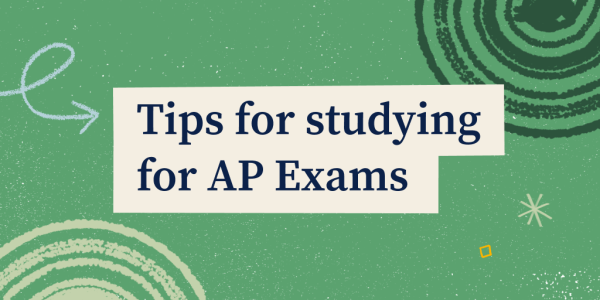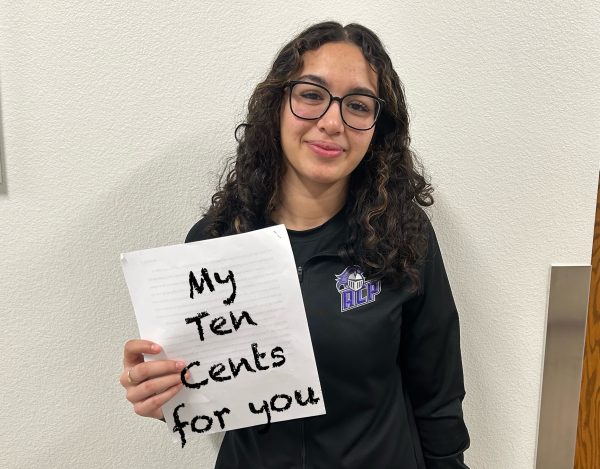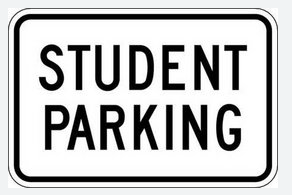The Gift of Gratitude
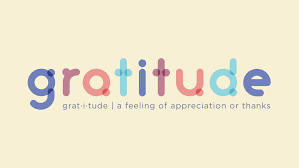
In this day and age, it’s easy to lose sight of things that are really important because we’re all trying to aim for the moon and go big. Though Thanksgiving is sometimes viewed as a hypocritical holiday (the first pilgrims were thankful of the natives for food and helping them survive on foreign land, but their descendants started discriminating and massacring them), the intention is to remember your roots and who or what helped you become the person you are today. We should be grateful for the people who helped us. According to Greater Good Magazine, gratitude is good for our mental health. Not only are you focusing on positive emotions and thoughts, but it helps other people feel appreciated and helps you become a better version of yourself. Here are five ways that gratitude improves mental health!
1.Gratitude helps reduce anxiety
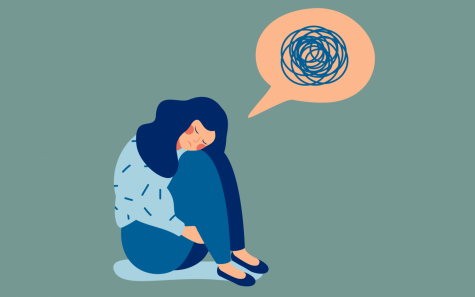
Anxiety isn’t all that great when you have to deal with it most of time in your everyday life. Though anxiety helps you be alert and wary of your environment, it can also start to affect your sleep, interfere with your relationships and work, and make you feel powerless when it’s out of control. According to PsychologyToday, “Multiple studies use gratitude interventions as free, simple, and effective ways to protect against anxiety. Promotion of self-understanding, reducing unbeneficial self-talk, and reducing anxiety in youth are ways in which we can benefit.” Gratitude also helps you reduce thinking about yourself in such a negative light and allows you to see yourself as a person with talents and flaws, just like anyone else.
2. Gratitude builds professional commitment
When you feel grumpy and upset, you’re obviously less likely to work in an efficient manner. Research shows that grateful workers are more productive and willing to go the extra step. “Expressing gratitude in the workplace is a proactive action toward building interpersonal bonds and trigger feelings of closeness and bonding” says Positive Psychology. Managers and supervisors who feel grateful tend to acknowledge and understand their workers better. It helps strengthen the group bond in a professional manner. Understanding what you have and how lucky you are makes you more compassionate, empathetic, and understanding.
3. Gratitude reduces pain
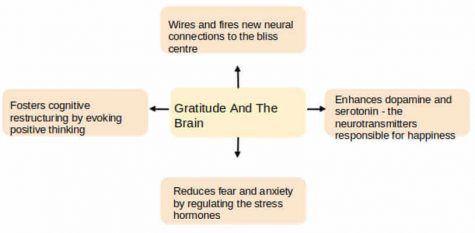
In 2003, a study conducted on evaluating the effect of gratitude on physical well-being, indicated that 16% of the patients who kept a gratitude journal reported reduced pain symptoms and were more willing to work out and cooperate with the treatment procedure. Not only that, but also it’s shown that gratitude helps regulate dopamine, the neurotransmitter that’s released when we experience happiness.
4. Gratitude has lasting effects on the brain

In 2017, Greater Good Magazine has found after a few psychotherapy sessions with people that when people felt more grateful, their brain activity was distinct from brain activity related to guilt and the desire to help a cause. “More specifically, we found that when people who are generally more grateful gave more money to a cause, they showed greater neural sensitivity in the medial prefrontal cortex, a brain area associated with learning and decision making. This suggests that people who are more grateful are also more attentive to how they express gratitude. Most interestingly, when we compared those who wrote the gratitude letters with those who didn’t, the gratitude letter writers showed greater activation in the medial prefrontal cortex when they experienced gratitude in the fMRI scanner. This is striking as this effect was found three months after the letter writing began. This indicates that simply expressing gratitude may have lasting effects on the brain. While not conclusive, this finding suggests that practicing gratitude may help train the brain to be more sensitive to the experience of gratitude down the line, and this could contribute to improved mental health over time” says the magazine. Being grateful helps prioritize your brain and what you want versus what you need.
5. Gratitude helps even if you don’t share it
From the same study from Greater Good Magazine, it’s recorded that only 23 percent of participants who wrote gratitude letters sent them. But those who didn’t send their letters enjoyed the benefits of experiencing gratitude, nonetheless. This shows that even if you don’t express it, acknowledging the feeling is still beneficial. It’s the thought that counts.
There you have it folks – five ways that gratitude helps improve your mental wellbeing. Whatever you’re grateful for, your pets, your family, your friends, or teachers, make sure to let them know that you care about them and appreciate what they’ve done for you. Don’t take things for granted or you’ll end up regretting it. Spend time with your loved ones when you have the chance and of course, remember to strive for the impossible and be extraordinary!
Sources:
https://greatergood.berkeley.edu/article/item/how_gratitude_changes_you_and_your_brain
https://www.psychologytoday.com/us/blog/comfort-gratitude/202007/gratitude-helps-curb-anxiety
https://www.mindful.org/what-the-brain-reveals-about-gratitude/

